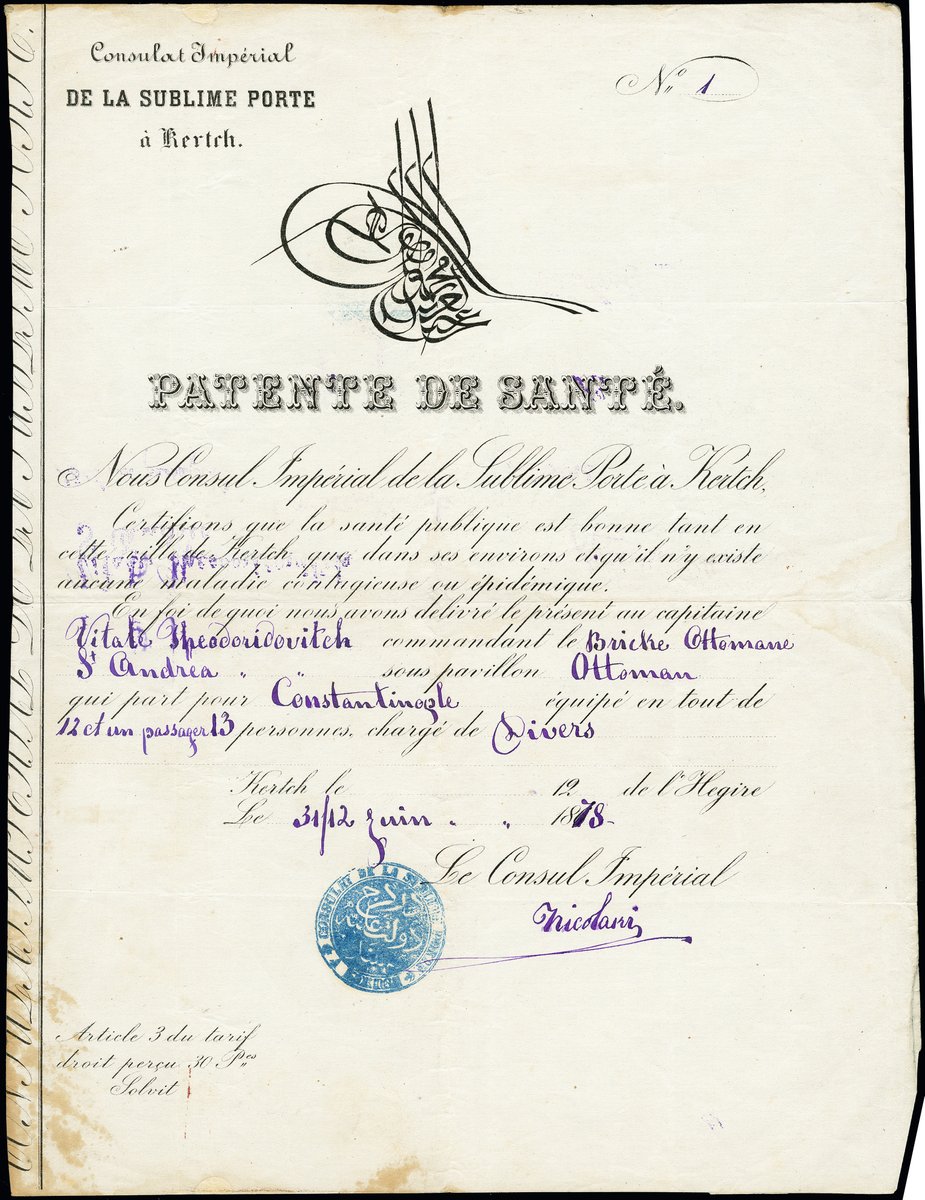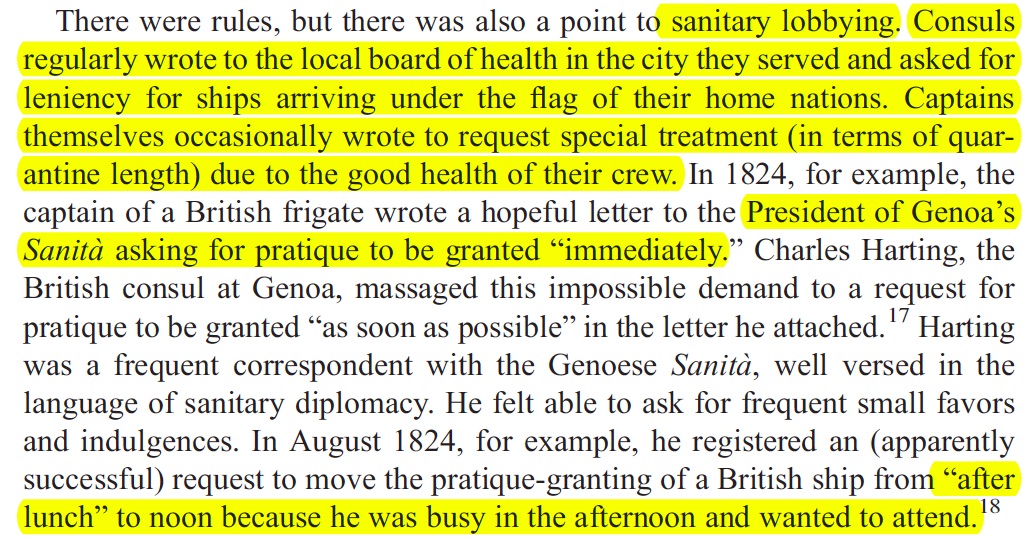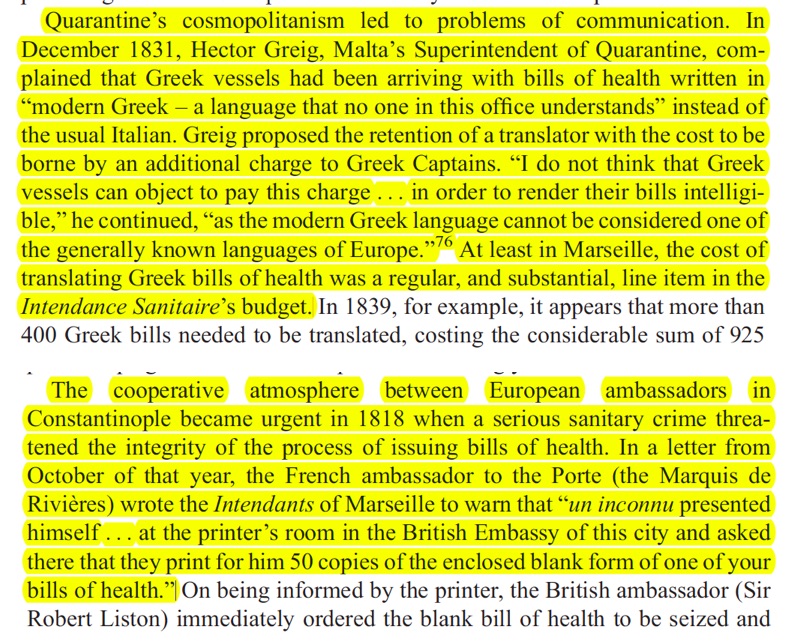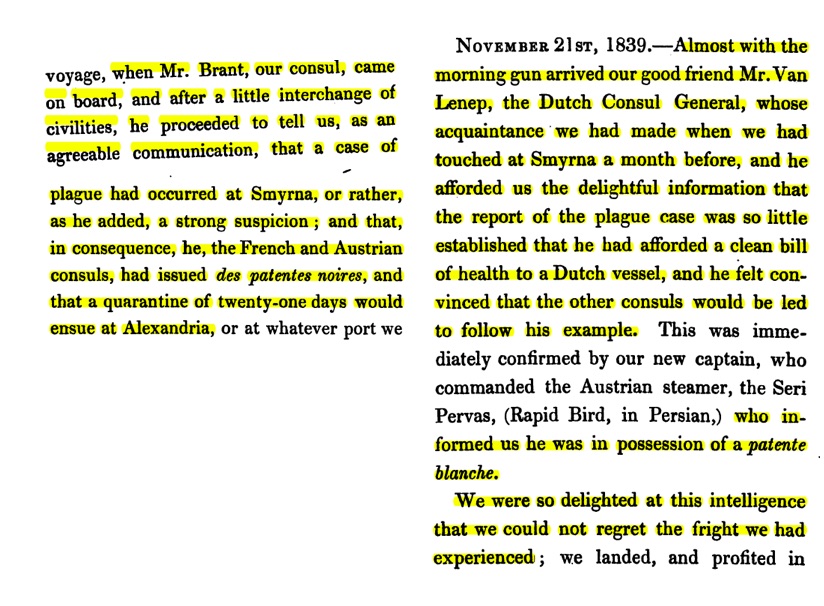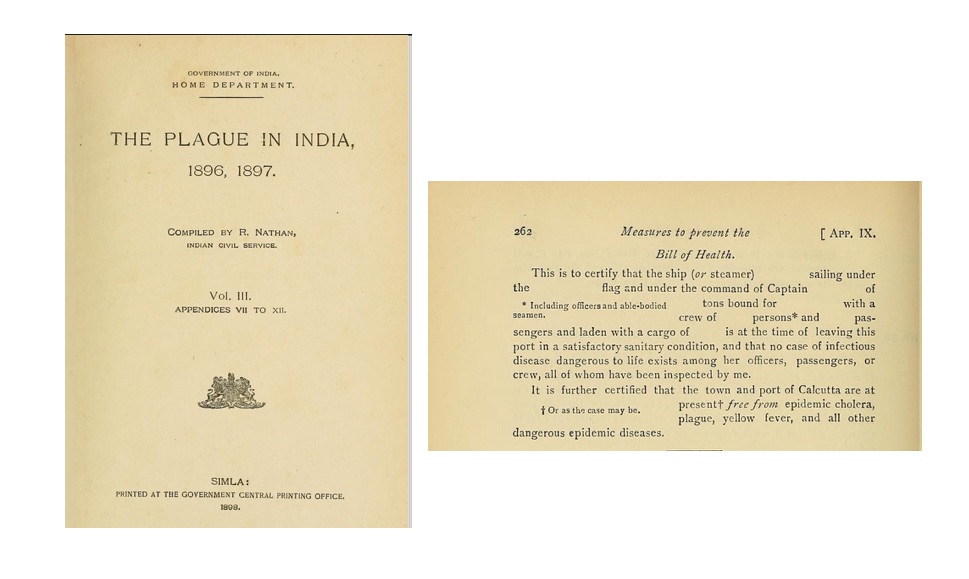Reading about digital health certificates I immediately think about old practices of issuing bills of health/patente de santé. Such documents for centuries were a precondition for ships to travel from one port to another, especially during epidemics. 1/7
Documents were issued by local consuls and oh boy a lot of politics was involved. “Sanitary lobbying” lead to fragmentary control and quarantine, competition between consuls, but also cooperation and standardization. /quotes from great book Yellow Flag by Chase-Levenson 2/7
Issues around standardisation (now interoperability?) were also present. Main concerns were problems with translation and formats of the bills. Occasionally sanitary crimes and counterfeiting happened 3/7
Consuls had also great power and individually decided to issue the bill (choosing between clean, suspected and foul, though no colours involved). Local competition between them was described e.g. by Mary Dawson Demer in 1840 4/7
.
.
Standardize bills of health were part of the colonial sanitary laws, which covered only “exotic diseases” or were limited to particular spaces or events (like Pilgrimage to Mecca). Such laws ensure continuity for transport and trade, especially between metropole and colonies. 5/7
Are there any lessons from those stories? Quite obviously digital certificate will be political, and strictly connected to economic and political interests (at geopolitical and local levels). We need to pay attention, understand and name those interests. 6/7
New individual and institutional practices will emerge. Counterfeiting, gaming, organizational competition? Maybe. But we need to see how different power dynamics evolve, to what extent they go beyond public health, what struggles they are involved in 7/7

 Read on Twitter
Read on Twitter